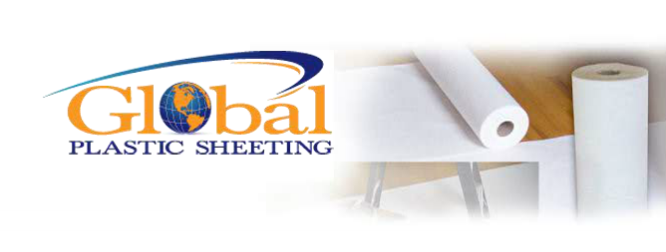Unveiling the Layers: Virgin Poly Sheeting vs. Regrind Poly Sheeting
Intro: In the world of polyethylene sheeting, understanding the distinction between virgin and regrind materials is crucial. Let's delve into how each is made, the key differences, and why it matters in various applications. We'll explore why virgin poly is pricier, industries that prioritize it, the impact on quality, and the analogy of cheap consumer products versus pure ingredients.
Virgin Poly/Plastic Sheeting vs Regrind
How is Virgin Poly Sheeting Made? Virgin polyethylene is produced using new, unused resin. The manufacturing process involves refining raw materials through polymerization, resulting in a pristine and uncontaminated product. It can be certified to various standards, ensuring its quality and suitability for specific applications.
How is Regrind Poly Sheeting Made? Regrind polyethylene involves recycling post-industrial or post-consumer plastic materials. These plastics are ground, melted, and reprocessed into a new product. While environmentally friendly, regrind may carry impurities from previous use.
Key Differences and Why It Matters:
-
Purity and Quality:
- Virgin poly is devoid of impurities, ensuring high-quality performance.
- Regrind may contain contaminants, potentially affecting durability and appearance.
-
Consistency:
- Virgin poly offers consistent properties due to controlled manufacturing.
- Regrind properties may vary, impacting reliability in specific applications.
-
Applications:
- Virgin poly is preferred in applications requiring uncompromised purity and performance, such as medical, food packaging, and critical industrial uses.
- Regrind is suitable for less demanding applications, like construction and agricultural covers, where slight variations in quality are acceptable.
-
Certifications for Virgin Poly:
- Virgin poly can be certified to various standards, ensuring compliance with industry regulations and specific quality benchmarks.
-
Cost Difference:
- Virgin poly is more expensive due to the refined manufacturing process and the use of new materials.
- Regrind is cost-effective, making it an attractive option for budget-conscious applications.
-
Industries Favoring Virgin Polyethylene:
- Medical and Pharmaceutical: Stringent regulations demand purity.
- Food Packaging: Ensures safety and compliance.
- Electronics: Requires consistent dielectric properties.
- Aerospace: Demands reliability and performance.
Analogy: Cheap Consumer Product vs. Pure Ingredient: Consider the difference between a generic consumer product and a product made with pure, premium ingredients. Just as the latter is carefully crafted for quality and adheres to specific standards, virgin polyethylene, when certified, is the premium choice in the world of plastic sheeting—offering a level of purity and performance that surpasses generic alternatives.
Running Shoes:
An example of a consumer product where the generic version is of much lower quality than the best version is "Running Shoes." High-quality running shoes from reputable brands often come with advanced technology, superior materials, and ergonomic design for optimal comfort and performance.
In contrast, generic or counterfeit running shoes may lack proper support, durability, and may not provide the necessary features for injury prevention and long-term use. Choosing a trusted brand for running shoes is crucial for serious athletes and those prioritizing comfort and performance.
Do foreign countries buy USA poly sheeting due to its purity?
Yes, foreign countries often purchase USA-manufactured poly sheeting due to its reputation for high quality and purity. The United States is known for implementing stringent manufacturing standards and regulations, especially in industries such as plastics. USA-made poly sheeting is often produced using advanced technologies and adheres to specific quality control measures, resulting in a product that meets or exceeds international standards for purity and performance.
Customers and industries in foreign countries seeking reliable, high-quality poly sheeting may prefer products from the USA due to the assurance of stringent quality standards, transparency in material composition, and compliance with various certifications. This can be particularly crucial in applications where purity, durability, and adherence to safety standards are paramount, such as in the construction, agriculture, and medical industries.
Conclusion: Choosing between virgin and regrind poly sheeting depends on your application's requirements and budget considerations. While regrind offers a sustainable option, industries with strict quality standards lean towards virgin poly for unparalleled purity and performance. Understanding the nuances empowers decision-making in diverse applications, ensuring optimal results and meeting industry-specific demands.


